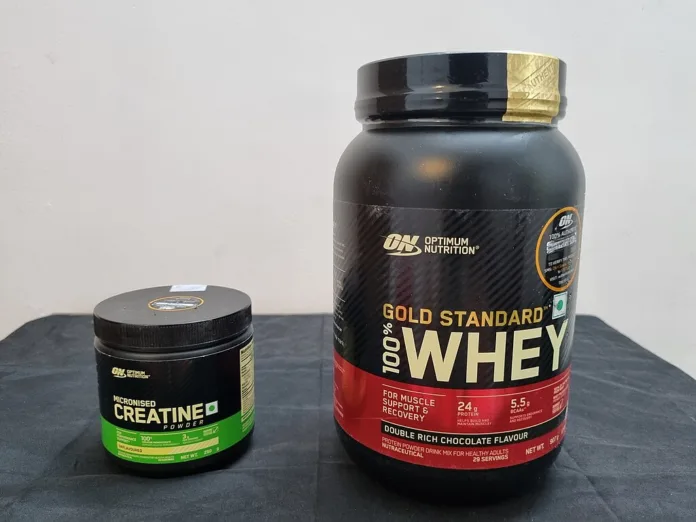Tests reveal ovrload’s Creatine Gummies contain significantly less creatine than advertised and include a banned sweetener, prompting calls for better regulation of supplements.
Popular fitness gummies claiming to build muscle and boost brain power have been exposed for containing far less creatine than promised, according to recent independent tests. The Ovrload Creatine Gummies, marketed as containing 1.5g of creatine per gummy, were found to contain a mere 0.084g, making it virtually impossible for users to achieve the recommended 5g dose needed for effective muscle growth and performance.
British personal trainer James Smith, who ordered the testing, was shocked by the results. To reach the recommended 5g dose, consumers would need to consume over 50 gummies a day, rendering the product ineffective and an expensive waste. Smith’s findings were corroborated by rival supplement company Known Nutrition, which also tested Ovrload’s gummies and found a similarly staggering discrepancy. Their tests revealed only 0.76mg of creatine per gummy—just 0.05% of what the label claimed.
Jess Hillard, a sports nutritionist, expressed concern over the underdosing. “If a supplement doesn’t contain the active ingredient in effective quantities, you’re just wasting money,” Hillard stated. She emphasised the potential risks of wasting time and delaying fitness progress due to ineffective products.
Embed from Getty ImagesExperts in the nutrition industry, including Aisling Pigott, a registered dietitian at The British Dietetic Association, were alarmed by the test results. “It raises the question: are there other ingredients in there that haven’t been tested or disclosed?” Pigott questioned. While the Food Supplements Regulations in the UK set out clear guidelines for what can and can’t be included in supplements, the current regulatory environment for such products is less stringent than for medicines, leaving gaps in testing and oversight.
This issue of underdosing is not isolated, with many in the industry warning that it’s a widespread problem in the supplement world. Hillard echoed these concerns, stressing the importance of regular, transparent testing to ensure that brands are held accountable for their claims.
In response to the allegations, Ovrload launched an investigation and paused the sale of its creatine gummies. The company defended itself by showing third-party test results, but these images were heavily redacted. Their own tests indicated that each gummy contains only 0.74g of creatine—far from the 1.5g advertised.
Adding to the controversy, the ingredient list on Ovrload’s gummies revealed the presence of allulose, a low-calorie sweetener banned in the UK. Allulose, which is popular in the US, is classified as a novel food in the UK and hasn’t been approved by the Food Standards Agency (FSA). Ovrload initially claimed that the inclusion of allulose on the label was a mistake, and the sweetener was never in the product.
However, experts warned that such discrepancies only fuelled distrust in the supplement industry. “If we can’t trust the label, what can we trust?” asked Pigott. She further expressed concern that consumers may unknowingly be ingesting ingredients that haven’t been disclosed or properly tested.
Ovrload has since updated its website and paused all sales while the investigation continues. Meanwhile, questions remain about the wider regulation of dietary supplements, with many calling for stricter oversight to protect consumers. As more consumers turn to supplements for fitness and brain health, the pressure is on both brands and regulators to ensure transparency and accuracy in labelling.
